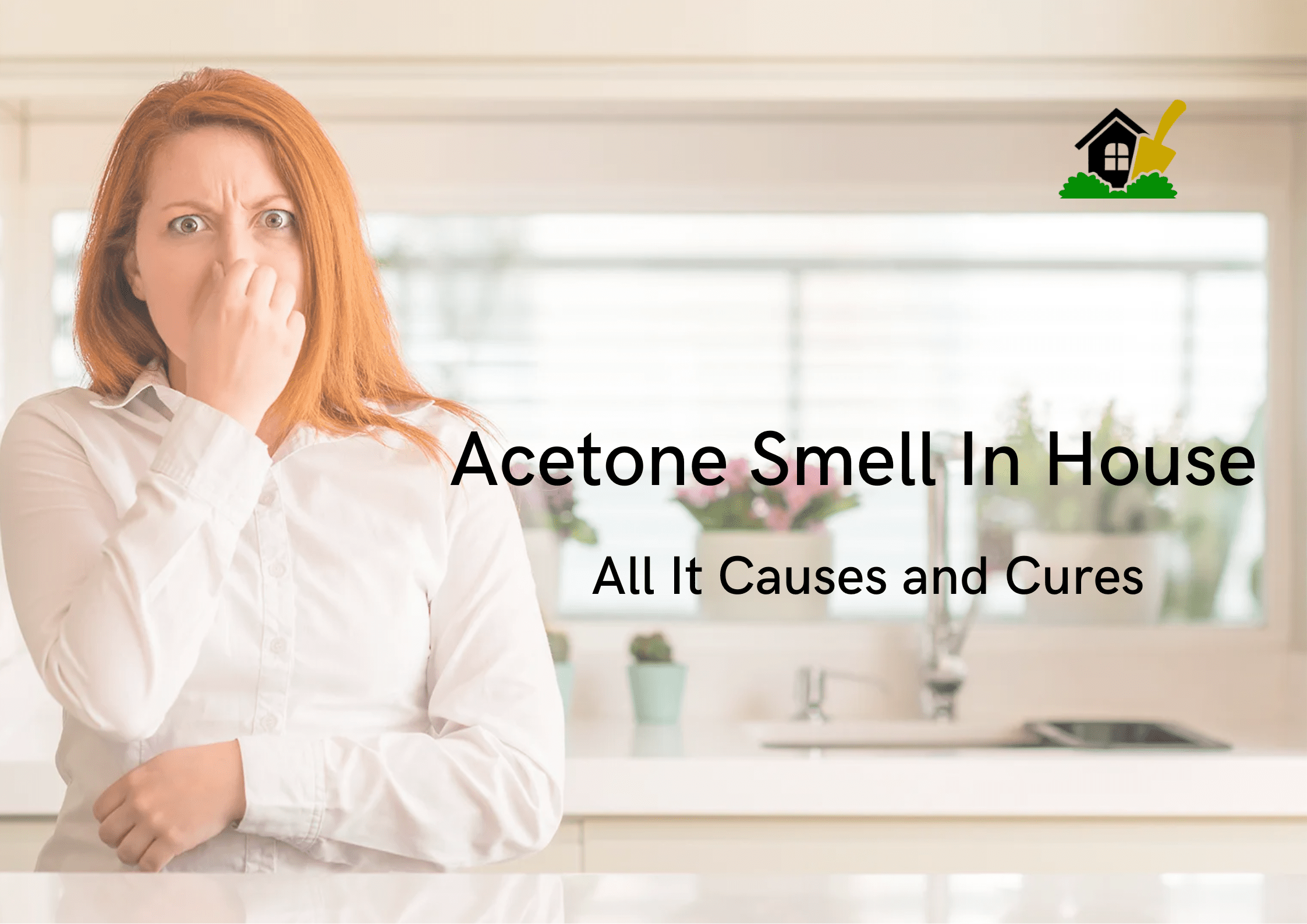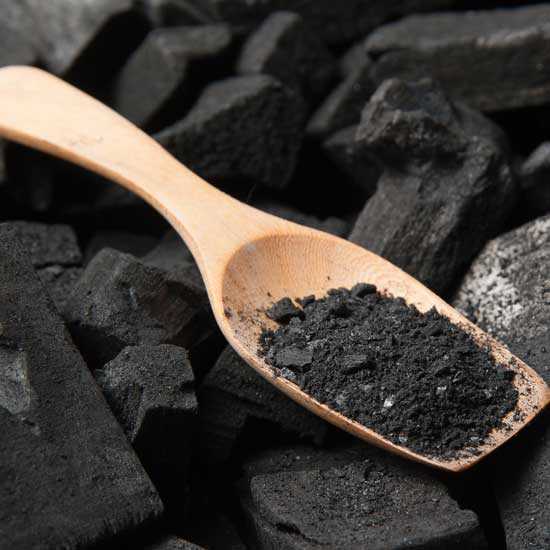Many people are familiar with the acetone scent, however, not everyone is able to identify it immediately. Acetone is a solvent that does not have an unpleasant odor at low levels and will usually only be noticeable when it is out-gassed from something. It is a colorless and flammable chemical compound with a strong, distinctive smell. Acetone can evaporate from any surface that is exposed to air and cause an odor.

The role of acetone in household cleaning products, in particular, those containing vinegar or similar chemicals, has led to confusion over where the smell actually comes from. This article aims to help people learn more about why acetone smell occurs in our households and what we can do to curb it.
You Might Also Like: Troy Bilt Snowblower Reviews 2022: Analyzing the Hype
All About Acetone | Acetone Smell In House
Acetone smells like paint remover, which is what it is – a solvent used to thin out and remove either oil-based or water-based paints. It’s not good for our nose and certainly not for the throat. It’s also another reason why you should be very careful around chemicals of any sort, especially when you’re cleaning up around the house. We use this chemical in our households as it has many purposes such as being used as nail-polish remover and cleaner to remove the dirt from fingernails. Acetone spillages or leaks in homes can cause a bad smell because bacteria on your skin break down acetone to form acetate which smells like vinegar.
Acetone can be purchased in various forms, including pure acetone (ideal for most household uses) which can be found in hardware stores or pharmacies. It is also commonly sold in spray bottles as “acetone thinner” or “acetone inhalant.” containing added substances to make them easier to spray onto surfaces and dissolve adhesives. Common places that smell of acetone include bathrooms, kitchens, and basements. Although it has several beneficial uses, acetone can still have negative effects. For example, it can cause a person to become drowsy and even lose consciousness in high doses. Although such side effects are very rare, the low toxicity level that acetone has does not make it as dangerous as other chemicals with higher toxicity levels.
What Causes Acetone Odor?
Some people believe the presence of acetone in a home or building is evidence that there are too many fumes present. This then leads people to wonder if they are on fire or if their house will self-ignite later on.
Most people who are experiencing such odor in their homes are usually unsure of where it is coming from. The main causes can be of two types: heavily oxidized nail polish or model paints. These materials contain acetone as the main ingredient, hence the common name of nail polish remover and model paint removers.

As you may have deduced, the acetone smell can be a result of certain chemical reactions with certain materials in your home. These odors are not harmful to humans, especially when they are present in a very small amount. As such, you don’t have to worry about your home suddenly bursting into flames because of it.
The smell of acetone is so strong and pungent that it can travel through your home with ease. You can smell it throughout the entire place, regardless of how well-sealed the doors and windows are. It just wants to escape, that’s for sure. The question is – what can you do about it? It’s a predicament worth fixing if you want your home to be as healthy as possible and you don’t want to be walking around with a runny nose every time you head inside.
What Can We Do To Remove The Acetone Smell In House?
According to some, there are many ways in which we can remove the acetone smell in our house. For example, you could use baking soda on top of the spot for several hours. Another option is to use a cotton ball with nail polish remover. Be sure to test it first before doing this around your home. According to some, all you need is two cups of water and about a quarter cup of any kind of vinegar. Be sure to mix these and then spray the mixture onto the spot. Let it sit for about 10 minutes and then blot. The vinegar will help remove all of the bad smells from the acetone.
There are many non-chemical products available on the market to remove the acetone smell. You can also give it a try if needed. While it is difficult to remove the strong odor, it’s not impossible!
Activated Charcoal: It is a form of charcoal that has been treated with oxygen, which makes it more porous and absorbent. When you rub it on your hands, it will absorb the acetone smell completely. You may also try it while cleaning your houses.

Tea Tree Oil: If you’re in a pinch and need to remove the acetone smell from your body, you can use tea tree oil. This is a natural oil that will help remove the smell from you. You can also use it while mopping the floors of your houses. It works because it has antibacterial properties.
Vinegar: Vinegar is also a good method for removing the acetone smell because it also has antibacterial properties. So, if you’re worried about the smell sticking around, make sure to wash your hands with vinegar and water, which will get rid of the excess oil.

Harmful Effects of Acetone
While acetone may be beneficial for certain tasks in small doses, it can actually do just the opposite when consumed internally or applied to the skin.
In terms of toxicity, acetone is even considered to be more toxic than carbon monoxide. Studies have shown that there are two ways in which acetone can affect the body: through inhalation and ingestion. Acetone poisoning can occur when taken internally because of its irritation to the respiratory tract which can cause damage to the lungs or from inhalation from trace amounts on a surface.
When acetone is inhaled or applied to the skin, acetyl groups are also broken down. This means that acetone can cause a cascade of reactions in the body as it is absorbed through the respiratory tract and absorbed into the bloodstream.
See Also: Craftsman Riding Mower Reviews: Worth the Bucks?
FAQs | Acetone Smell in House
Does Acetone produce fumes?
Acetone evaporates quickly and produces fumes that can remain in the air for hours. Acetone can be harmful to your health if you inhale too much of it. Inhaling the fumes of acetone may irritate the eyes and throat. The fumes can also irritate the lungs. The health effects of acetone exposure include headache, nausea, eye and skin irritation, respiratory problems, and asthma attacks.
Why does Acetone smell in the bedroom?
When a mixture of acetone and air is released from an enclosed space, it will give off a sweet and sour odor. Since the substance is so toxic, it can be dangerous for people to be exposed to large amounts.
How does Acetone work?
Acetone is a ketone or a by-product of fat metabolism. Although it’s not directly harmful to humans, it absorbs through human skin and enters the bloodstream where it can be toxic if consumed.
You Might Like: 11 Best Post-Emergent Weed Killer | Buyer’s Guide 2022
Conclusion | Acetone Smell in House
It’s easy to become a victim of the acetone smell in your house. It is said to be quite toxic, and you should not inhale the fumes for more than five minutes at a time. The smell will seem like it’s just from nail polish remover, but you’ll notice that it never actually goes away. It seems to get stronger as the days go by and it will also last on things like carpet and furniture. It is this overbearing smell that many people find to be quite unpleasant in their homes. Thus getting rid of the acetone smell in the house becomes necessary.
This smell will build up in your home and starts to be a problem for you and your family. There are a few reasons as to why this smell occurs, but the most common cause is using too much of the product. Acetone should not be used in large quantities around the house as it can burn your skin and hands or even cause respiratory problems if you’re exposed over long periods. There are other options available, though acetone works well when used correctly.
